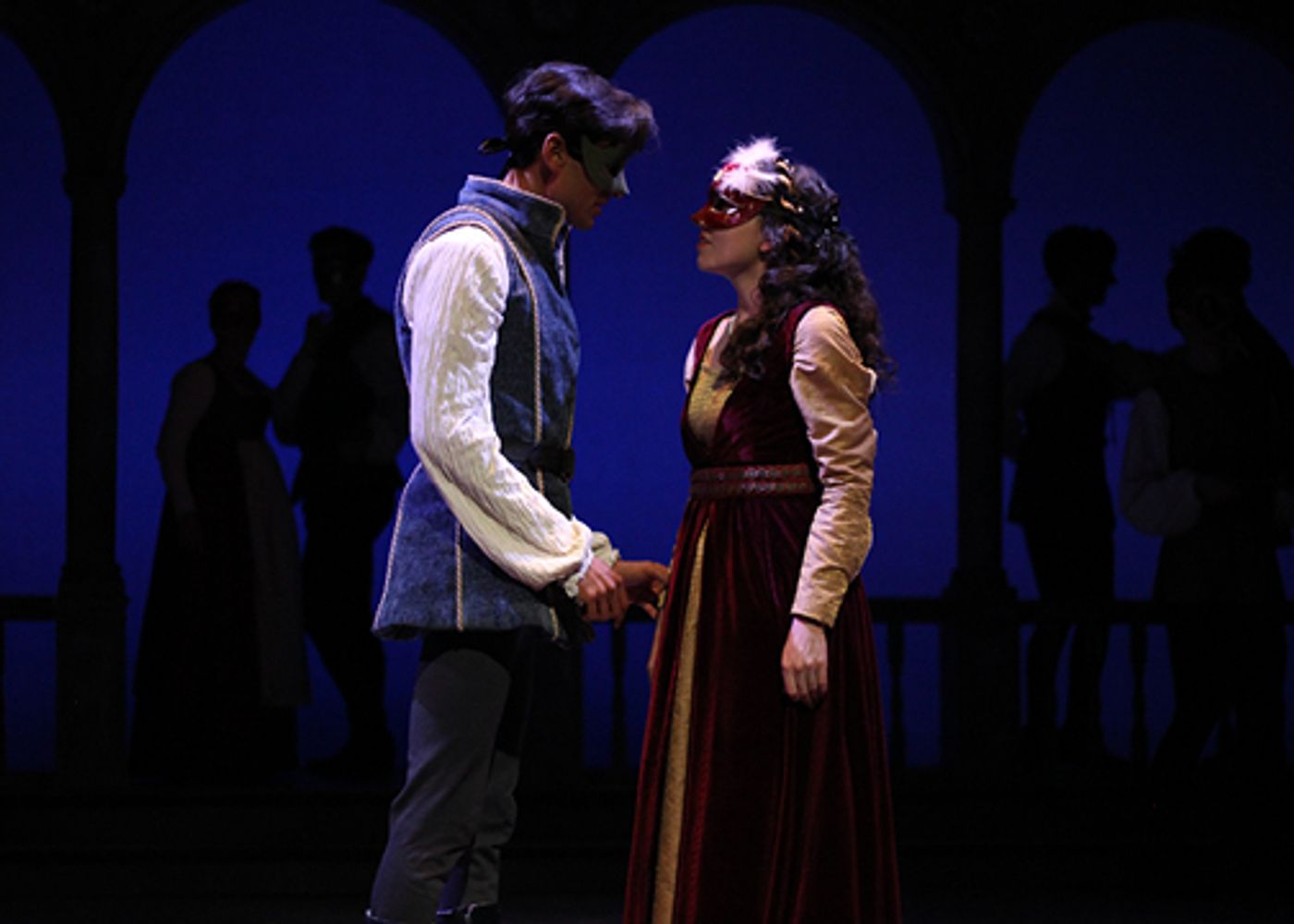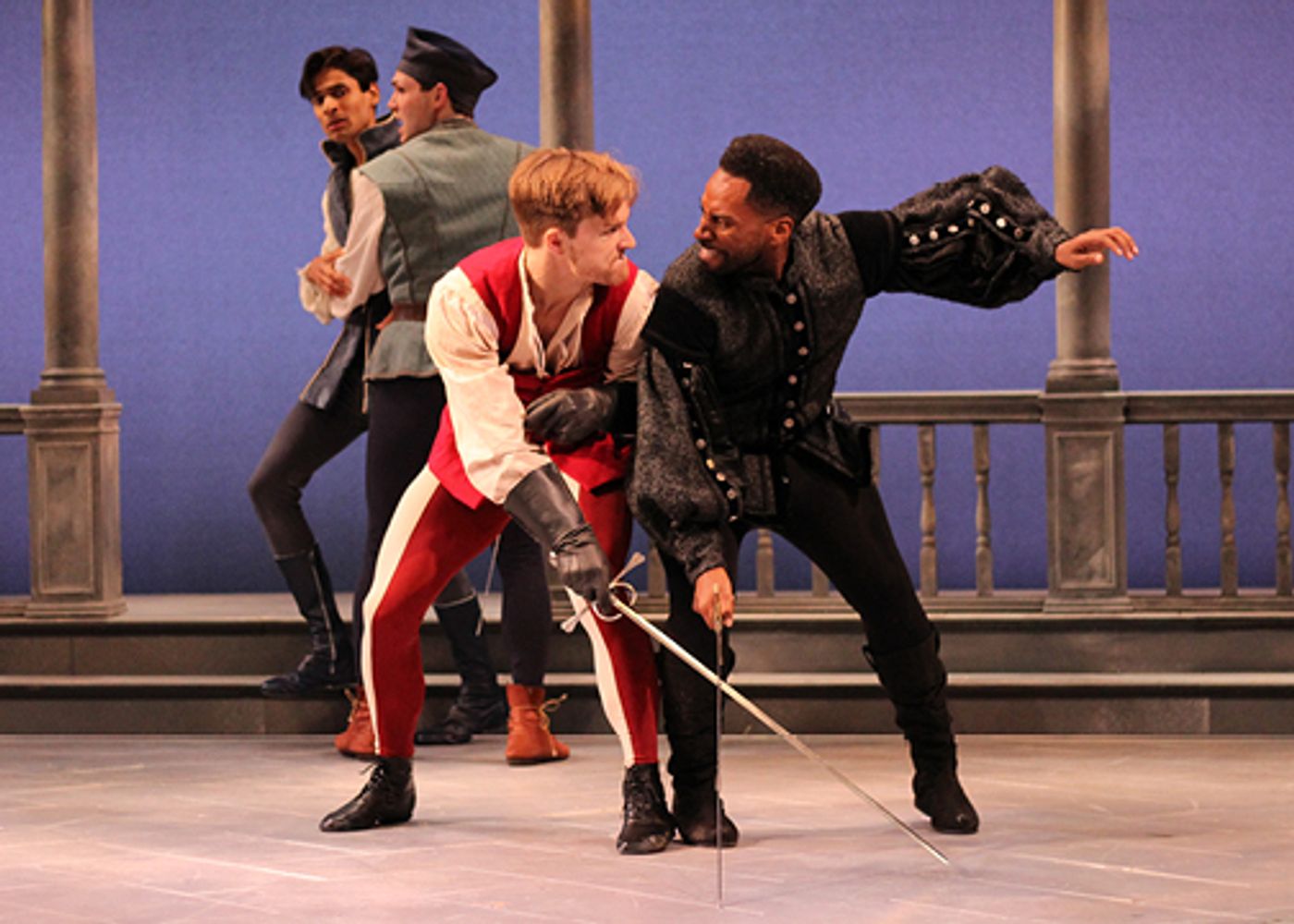Interview: Artistic Director Bonnie Monte of STNJ Discusses ROMEO and JULIET On the Madison Stage through 11/17

The Shakespeare Theatre of New Jersey (STNJ) has continued its 2019 Season with William Shakespeare's Romeo and Juliet. Directed by Ian Belknap, Artistic Director of the prestigious Acting Company in NYC, the show will be on the Madison stage through Sunday, November 17.
The play is the world's most famous love story and a tragedy of heartbreaking beauty that speaks to every person of every era. This timeless masterpiece about civil and domestic strife, a divided community, and the doomed union of star-crossed lovers is a moving, provocative, eternally relevant work of art is filled with some of the most beautiful poetry ever penned.
Broadwayworld.com had the pleasure of interviewing Bonnie J. Monte, the Artistic Director of The Shakespeare Theatre of New Jersey, about Romeo and Juliet and her highly acclaimed Theatre.
Bonnie J. Monte entered her 29th season as Artistic Director in 2019. Under her leadership for almost three decades, the Theatre has evolved into one of the most respected classical theatres in the nation. Ms. Monte has garnered national recognition for her highly successful revitalization of the institution and for her commitment to arts education; and during her tenure, The Shakespeare Theatre has become one of the leading training grounds for emerging professionals.
Ms. Monte obtained a post-graduate conservatory degree in directing from The Hartman Conservatory and a B.A. in theatre from Bethany College in Bethany, West Virginia. She has Honorary Doctor of Humane Letters degrees from Drew University and the College of Saint Elizabeth. Prior to assuming leadership of The Shakespeare Theatre, Ms. Monte was one of the casting directors at the Manhattan Theatre Club in New York City, and before that, she spent almost a decade at The Williamstown Theatre Festival working closely with Nikos Psacharopoulos as his Associate Artistic Director. She is originally from Stamford, Connecticut.
Ms. Monte shared her insights about producing Romeo and Juliet, the team for the iconic play, what sets it apart from other productions of the beloved classic, and a little about the audiences for the STNJ show.
As a producer of classics, we deal with many daunting challenges, but one of the challenges that we don't get a chance to talk about much is the trouble one has with the really, really famous plays. We haven't done Romeo and Juliet here in about ten years, and while it is a show that we want to introduce to each and every generation of young audiences, we manage to do that to a great degree through our Shakespeare LIVE! touring program for student audiences in which we present R&J about every three years or so. We are always a bit leery about main stage productions of the most well-known plays because they actually suffer a bit from the audience knowing them so well. And Romeo and Juliet may have the hardest time surviving what I'll call the audiences' "pre-conceived notions." It's kind of like what happens when you read a book that you love, and then someone announces that they're going to make a movie version of it - often we resist seeing the film because we don't want to destroy the fabulous vision of the book and the book's characters that we have imagined and seen in our mind's eye as we read the tale. So, because almost everyone is familiar with Romeo and Juliet, almost everyone has fairly strong opinions about what it "should be". If you cast a Romeo or a Juliet that doesn't match a particular person's idea of what they should look like or sound like, then that person in inclined to have a much harder time being open to what they are seeing on stage. That same pre-viewing "prejudice" applies to the setting, the costumes, the other characters, etc. etc.

On every production we've done of the most famous Shakespeare plays - most notably Romeo and Juliet, Hamlet, Othello, and Much Ado About Nothing, we've experienced this "famous play stigma." While - A Midsummer Night's Dream and Macbeth are equally well-known, audiences seem more open to what they might see in any given production, and that may be because there are elements in those shows that break with reality and so audience members are less "committed" to whatever their imagination supplied or didn't supply upon reading those plays.
Ian Belknap and I talked about this dilemma several times during his time with us, and we agreed that leaping into a production of Romeo and Juliet always brings a small dose of discomfort for the director, knowing ahead of time that you're never going to please everyone - it's impossible, for everyone wants something different from the play. All this is to say-that one has to be brave in simply committing to your own vision of it, and aim to make that vision as dynamic and fulfilled as you can. Then you hope that you manage with that strong vision to overcome an audience member's preconceived notion about "what it should be." I think Ian did that very well. It's great to hear comments from patrons as they leave the theatre saying things like, "Wow, I never thought about the Nurse that way" or "I've never seen a Mercutio played in that way before; he was very effective".
It also felt great to give Ian an opportunity to do the play in a more epic fashion. He often spoke about how rare it is to have a chance to do a Shakespeare play on a grand scale - with Renaissance costumes for a cast of 20; a large, open setting, and an audience that is patient with, and indeed eager for, a full-length version. So often these days, because of financial, logistical and socio-cultural constraints, companies have to do honed down, small-scale, small-cast productions of Shakespeare's works. We are very proud that we have managed to sustain our work with Shakespeare on a fairly large level - and that we can offer that opportunity to guest directors as well as our own in-house artists. And in this day and age, when doing modern-time versions of Shakespeare is more the norm than not, I think Ian was really excited to have the chance to set the play in the Italian Renaissance.

For me, personally, it is not often that you get to collaborate with another artistic director of a classic theatre company. There is a shared "vocabulary" and shared understanding of the dilemmas and obstacles that we both face every day, and that brings a welcome dose of comfort and strength in getting to work with someone who knows exactly what you're up against on a daily basis. It was a really lovely, wonderful thing to have Ian with us on this one, and I hope it's the first of many times that we can work together!
For tickets to Romeo and Juliet at The Shakespeare Theatre of New Jersey, please visit http://www.shakespearenj.org/ or call the Box Office at 973.408.5600. The Theatre is located at 36 Madison Avenue in Madison on the campus of Drew University. The Theatre's upcoming holiday production includes Charles Dickens' A Christmas Carol that will be performed from December 4 to December 29.
Photo Credit: Headshot courtesy Bonnie J. Monte. Production photos courtesy of Joe Guerin.
Videos


